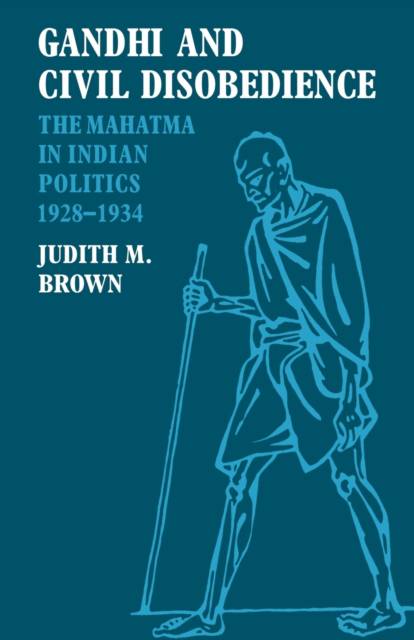
- Afhalen na 1 uur in een winkel met voorraad
- Gratis thuislevering in België vanaf € 30
- Ruim aanbod met 7 miljoen producten
- Afhalen na 1 uur in een winkel met voorraad
- Gratis thuislevering in België vanaf € 30
- Ruim aanbod met 7 miljoen producten
Zoeken
Gandhi and Civil Disobedience
The Mahatma in Indian Politics 1928 1934
Judith M Brown
Paperback | Engels
€ 85,45
+ 170 punten
Omschrijving
Mahatma Gandhi's lengthy Indian career was of central importance in the development of Indian politics and the changing relationship of the British raj and its subjects. But the extent of his political influence and his role varied considerably at different times. This book is an analysis, based on new material, of the phase between 1928 and 1934 when Gandhi was leader of a continental campaign of civil disobedience against the Raj. During this time Gandhi emerged from the comparative political quiescence which had followed his initial rise to prominence in 1920 as architect of a campaign of non-cooperation with the Raj. He resumed a crucial role as leader of the Congress movement against the British. At the peak of his political influence he negotiated a 'pact' with the Viceroy by which the civil disobedience campaign - most graphically illustrated in the famous Salt March to Dandi - was suspended.
Specificaties
Betrokkenen
- Auteur(s):
- Uitgeverij:
Inhoud
- Aantal bladzijden:
- 436
- Taal:
- Engels
Eigenschappen
- Productcode (EAN):
- 9780521066952
- Verschijningsdatum:
- 30/10/2008
- Uitvoering:
- Paperback
- Formaat:
- Trade paperback (VS)
- Afmetingen:
- 140 mm x 216 mm
- Gewicht:
- 548 g

Alleen bij Standaard Boekhandel
+ 170 punten op je klantenkaart van Standaard Boekhandel
Beoordelingen
We publiceren alleen reviews die voldoen aan de voorwaarden voor reviews. Bekijk onze voorwaarden voor reviews.











